National Dialogue: The good, the shortfalls and all the mounting criticism unpacked
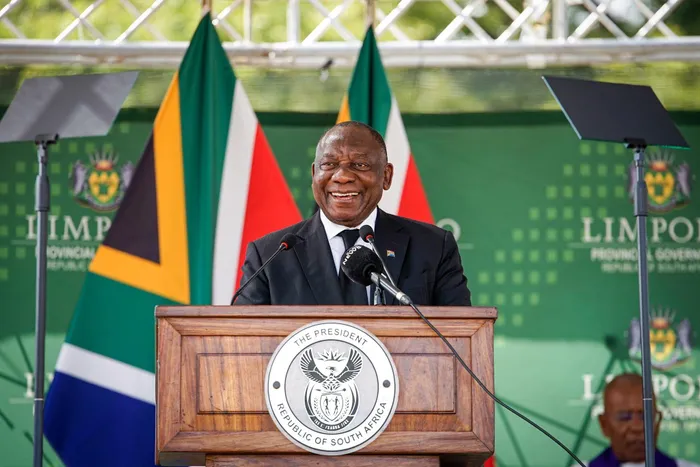
President Cyril Ramaphosa has since assured the public that efforts are underway to reduce the overall cost.
Image: ANC/X
Despite mounting criticism and growing calls to halt the National Dialogue, several experts and civil society groups are weighing in, defending the initiative but also sharing their own critiques.
Since its announcement, the Dialogue has sparked heated debate, especially after its estimated R700 million cost drew widespread backlash.
President Cyril Ramaphosa has since assured the public that efforts are underway to reduce the overall cost.
“We are going to make sure that it is driven down. It is just an estimate.”
Ramaphosa said they are going to make sure that they spend as little as possible, but at the same time, have as much consultation as possible.
“What has been put [forward] as the budgeted amount is going to be looked at. I have said to my colleagues that the cost that has been put out must be driven down, and we must get to the bare bones and make sure that we have a very rich process of giving South Africans an opportunity of coming up with a very good outcome of the dialogue,” he said.
Anglican Archbishop Thabo Makgoba, who was appointed by the president to be among the Eminent Persons Group, said that a successful outcome of the National Dialogue depends on the process becoming everyone’s business.
The Eminent Persons Group is made up of leading figures in society with a proven commitment to advancing social cohesion and nation-building.
“The churches support the dialogue, having called in 2017 for a national conversation aimed at confronting societal fragmentation, moral deterioration and the loss of trust in public institutions. But as we have told President Ramaphosa, it is critical for the credibility of the dialogue for it to be free from manipulation by political and economic elites,” Makgoba said.
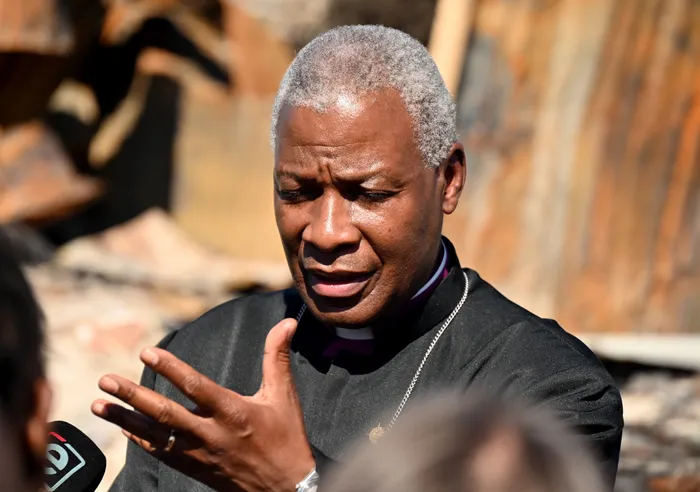
Anglican Archbishop Thabo Makgoba.
Image: Ayanda Ndamane/Independent Newspapers
Makgoba added that the Eminent Persons Group and the dialogue’s steering committee need to be able to act independently, without being dictated to by politicians.
“The relevance of the dialogue will depend on how representative its deliberations are of the full spectrum of South African society.”
A crime and policing expert from Stellenbosch University, Professor Guy Lamb, said that the process is important and feels that the debate at the moment is largely around how to do this and what is the appropriate means of doing this.
“Government has gone for the 'celebrity' type/high-level approach, which has happened many times before, whereas it might be better to do it sector by sector, focusing on what plans exists, how do we improve on them, how do we change them, and how do we have a conversation about climate change, and a conversation about crime.
“We need to develop the architecture, the systems and the processes to get it done, and we need to be reflecting on why we haven’t made progress? We have to look at the nature of government.
“So, conversations are happening surrounding red tape, and reducing it to get other issues done, but really, we should also be looking at what the problems are with government procurement, and why there are delays there? Why, when you look for service providers, do you not get quality? All of these kinds of issues, tied into how to improve governance, is a more important conversation.”
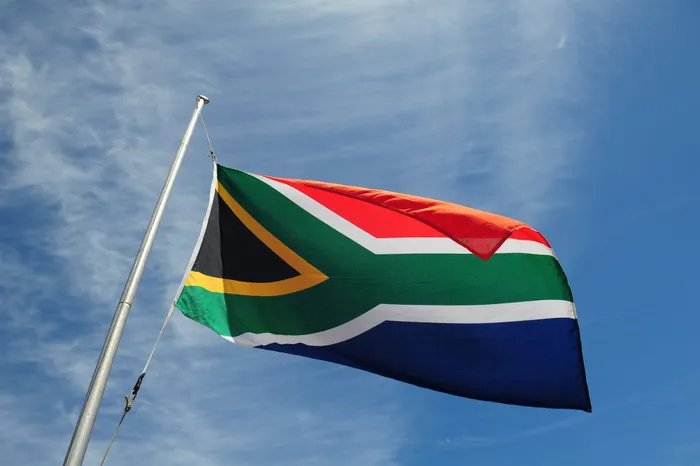
Since its announcement, the Dialogue has sparked heated debate, especially after its estimated R700 million cost drew widespread backlash.
Image: Picture: Henk Kruger/ Independent Newspapers
Power and energy expert Professor Vally Padayachee says that beyond the immediate need for dialogue in times of political and economic change, it is essential for rebuilding trust between the government and citizens, promoting transparency, and addressing systemic inequalities.
“By bringing diverse voices to the forefront, it ensures that policies reflect the multifaceted nature of society, making governance more effective and responsive. Although we are more than 31 years into our democracy, in my opinion, SA reflects a serious trust deficiency, and this is not sustainable going forward,” Padayachee said.
Padayachee added that he feels its common knowledge that the power and energy sectors underpin all other sectors, therefore “the president should also give priority and credence and focus to further enhancing the performance and outputs from these sectors noting that SA is currently experiencing an energy security crisis mainly with regards to electricity and the poor performance of Eskom and the municipal electricity utilities”.
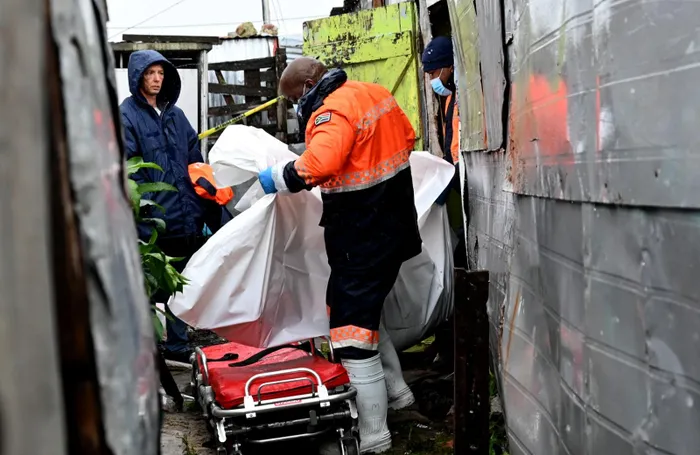
The crime scene in Kanana Informal Settlement, Gugulethu.
Image: Ayanda Ndamane / Independent Newspapers
Spokesperson for anti-GBV organisation, Ilitha Labantu, Siyabulela Monakali, echoed the experts’ sentiments that far too often, dialogues and engagements are mere tick-box exercises, where commitments are made but seldom realised in practice.
“As Ilitha Labantu, we recognise the idea of a National Dialogue as a symbolic gesture to bring South Africans together. However, symbolism does not address the urgency of our reality.
“The country is grappling with unprecedented levels of inequality and poverty, a 62% youth unemployment rate, and a sustained crisis of violence against women and children.
“The most recent national crime statistics covering January to March 2025 paint a bleak picture: 5,727 people were murdered, and more than 24,000 sexual offences were recorded, including 13,452 sexual offences in general and 10,688 cases of rape.
“These are not simply numbers; they are the lives of women, children, and families shattered by violence,” Monakali said.
“There is a pattern in South Africa of high-profile engagements that result in lengthy declarations but little follow-through. To avoid repeating this, the government must set specific commitments tied to clear deadlines, with budget allocations transparently published. Outcomes must be monitored and reported publicly, and failures must carry consequences.”
Monakali said that the proposed R700 million price tag is indefensible in the current climate.
“South Africa regularly claims it cannot afford essential developmental investments, resources for community-based organisations, adequate funding for shelters, or even basic infrastructure to keep courts functioning without interruption from load shedding. Yet it can suddenly mobilise hundreds of millions for a dialogue.
“South Africa has never lacked vision. The problem has always been implementation. The National Development Plan promised an inclusive economy and social transformation, yet more than a decade later, nearly one in two adults has no work, and food insecurity is widespread.
“It is no longer credible to insist that more plans or dialogues will fix what is broken if there is no commitment to action. Communities are not asking for perfect outcomes; they are asking for functioning institutions and delivery that can be trusted. A dialogue that ends in another report will simply confirm the growing belief that the government has lost the capacity to lead,” Monakali said.
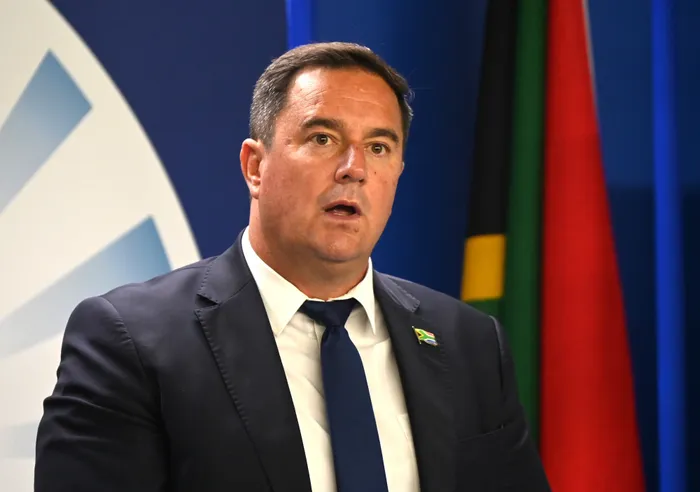
DA leader John Steenhuisen.
Image: Ayanda Ndamane/Independent Newspapers
Apart from the Democratic Alliance (DA) announcing last month that it has pulled out of the endeavour, just this week, civil rights group #NotInMyName called on the government to shelve its plans, and the Labour Party of South Africa headed to the Gauteng High Court, Pretoria, on Wednesday to urgently halt it.
The DA claims that instead of upholding the wishes of the people by working respectfully and collaboratively with all partners inside the GNU, the ANC has repeatedly undermined these principles.
“Time after time, it has slapped away the hand of substantive cooperation and co-creation, in favour of arrogant and narrow political self-interest.”
#NotInMyName said public trust in the government has reached new lower levels, just below zero.
President of #NotInMyName Siyabulela Jentile insisted the government has no moral imperative to convene the dialogue, “at least not while it lacks the political will to address widespread reports of corruption” and mismanagement of state resources.
The Labour Party of South Africa said the National Dialogue is not a genuine democratic exercise, but a costly and dangerous duplication of the national legislature.
Advocate Margaretha Enbelbrecht SC argued that the National Dialogue Preparatory Committee estimates that the initiative will cost over R700 million, according to an announcement dated 12 June.
This amount only covers the expenses of the National Convention on 15 August, along with provincial and community engagements, as well as logistical costs such as venues, travel, and accommodation.
“In other words, significantly more than R700 million can be anticipated to be spent on implementing the decision to have a National Dialogue,” she said, pointing out that “there isn’t a budget, there isn’t a number or a cost that the government has committed to. All we have is what has been communicated as a proposal”.
theolin.tembo@inl.co.za